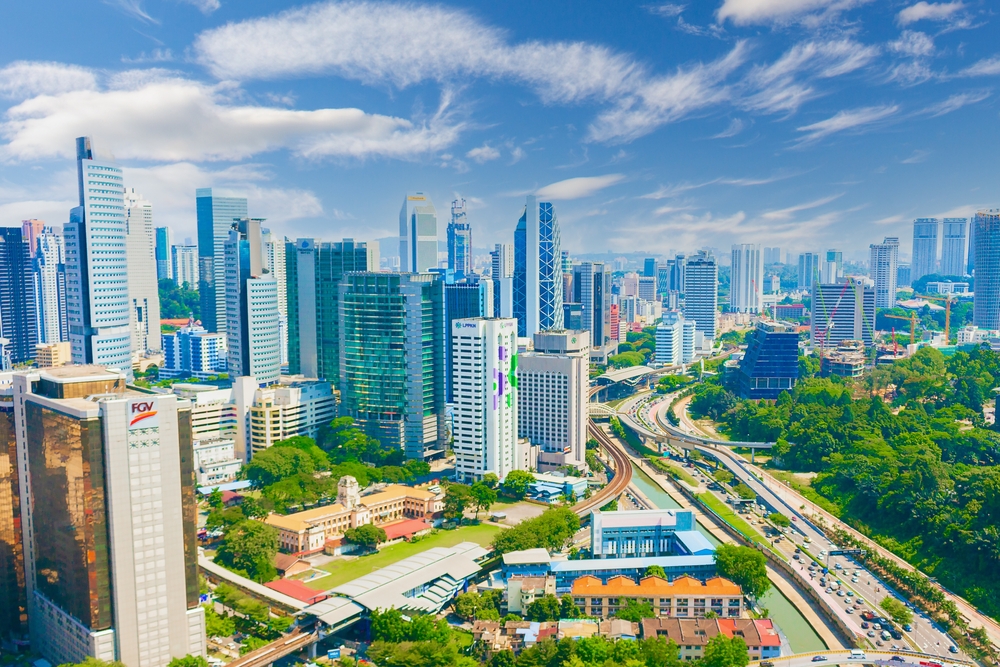Market forecast for 2024 shows promise with increased FDI and positive economic sentiments
Malaysia’s real estate market is projected to remain stable and experience positive growth in 2024, driven by increased foreign direct investment (FDI), economic stability, and strategic infrastructure developments. This optimistic outlook comes amidst a backdrop of resilient economic performance and evolving investment trends that are shaping the property landscape.
According to Knight Frank Malaysia’s Commercial Real Estate Investment Sentiment Survey for 2024, as reported by The Sun, the local property market exhibited considerable strength in 2023. The first nine months alone saw 293,095 transactions valued at MYR142.5 billion, an 8.8 percent increase in value from the same period in 2022. The agency’s group managing director, Keith Ooi, emphasised the resilient performance of both the economy and the real estate market in 2023, setting a cautiously optimistic tone for 2024.
Ooi highlighted the growing demand for data centres in the Asia Pacific region and increased interest in alternative investments such as serviced residences and industrial parks as key drivers of the commercial real estate market’s resurgence post-pandemic. Additionally, 68 percent of survey respondents believe that improved economic conditions will make FDI more favourable, particularly in the manufacturing sector, which benefits from the country’s robust ecosystem and resources.
In terms of budget impacts, 60 percent of respondents viewed Budget 2024 as neutral towards the commercial property market. Despite global challenges, there is a prevailing optimism regarding Malaysia’s economic performance, digital evolution, and real estate market, supported by a resilient labour market and positive consumer sentiments. The outlook on political stability further enhances investor confidence domestically and internationally.
Moreover, Knight Frank’s research and consultancy executive director, Amy Wong, noted a predicted increase in investments in the retail, healthcare, and educational sub-sectors in 2024. However, interest in the office and industrial/logistics sub-sectors remains minimal, with the hotel/leisure sector maintaining trends similar to last year. Wong also pointed out a growing preference for alternative investments, such as co-living/student accommodation and co-working/flexible office spaces, driven by evolving work preferences and technological advancements.
The first quarter of 2024 (1Q 2024) saw the Malaysian property market recording a 34.3 percent growth compared to the same period in 2023, with over 104,297 transactions valued at RM56.53 billion, cited Bernama. This significant growth was observed across various property sub-sectors, with the commercial sub-sector growing by 33.4 percent, residential by 16.6 percent, industry by 14.3 percent, agriculture by 13.7 percent, and development land and others by 10.7 percent. The residential sub-sector dominated market activities with over 62,000 transactions valued at RM25 billion.
Valuation and Property Services Department Director-General Abdul Razak Yusak reported that construction activities also showed positive growth in 1Q 2024. New residential launches increased by 19.8 , and the serviced apartment segment saw a 70 percent spike in completed units. The Malaysian House Price Index rose marginally by 0.5 percent to 216.9 points, with average house prices at MYR468,000 per unit.
In terms of infrastructure developments, PropertyGuru Malaysia’s latest Property Market Report (MPMR) for Q1 2024, as stated on New Straits Times, highlighted the positive influence of strategic projects on property market dynamics. The Rapid Transit System (RTS) project is expected to stimulate demand in Johor, while the Penang LRT Mutiara Line, set for completion in 2030, is anticipated to enhance property appeals in its vicinity.
PropertyGuru Malaysia’s Country Manager Kenneth Soh underscored the importance of such improvements in determining real estate demand, as they influence job accessibility and development opportunities. Despite seasonal variations, Soh anticipates stability in residential supply and demand. The MPMR reported minor quarter-on-quarter decreases in the Sale Demand and Sale Supply Indexes, attributed to seasonal factors.
Soh also highlighted recent loan data from Bank Negara Malaysia, showing a 5.7 percent year-on-year increase in total property purchase loan applications in 2023, reflecting a steady interest in real estate investments. The introduction of the Housing and Local Government Ministry’s (KPKT) Program Residensi Rakyat (PRR), aimed at providing quality housing at a construction cost of MYR300,000, is expected to further support the market.
Amid these positive trends, the 10th PropertyGuru Asia Awards Malaysia in partnership with iProperty.com.my 2023 recognised top developers for their contributions. WCT Land Sdn Bhd was named Best Developer (Malaysia), Best Developer (Central Malaysia), and Best Mixed Use Developer, while Tanah Sutera Development Sdn Bhd and Tanjung Ratna Sdn Bhd were granted as Best Developer (Southern Malaysia) and Best Boutique Developer, respectively. Other developers honoured at the prestigious event were Mah Sing Group Berhad for Best Lifestyle Developer and Perbadanan Kemajuan Negeri Selangor for Best Affordable Homes Developer.
As Malaysia navigates global uncertainties, its real estate market remains resilient and attractive, bolstered by strategic investments, infrastructure projects, and supportive economic policies.
Find out which developers will reign supreme at the 11th annual PropertyGuru Asia Awards Malaysia in partnership with iProperty.com.my awards ceremony on 25 October 2024. To know more, visit AsiaPropertyAwards.com/Award/Malaysia/.
Gynen Kyra Toriano, Digital Content Manager at PropertyGuru, wrote this article. For more information, email: [email protected].

